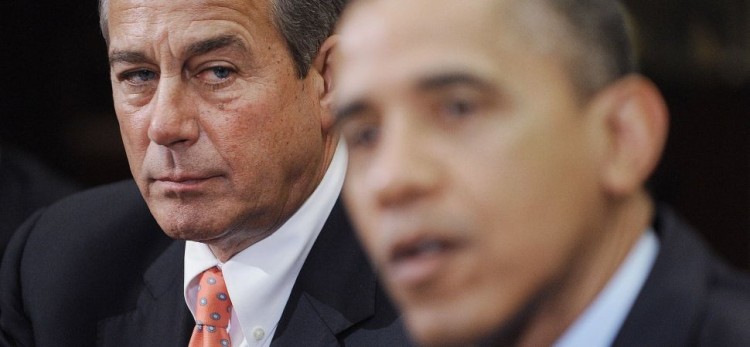BY Jeremy Quittner: The midterm elections are just three weeks away. We break down the biggest issues for small business
The Midterm Elections: A Small-Business Primer

Think back to this time last fall, and you’ll remember Congress had shut down the federal government over a budget impasse, and political sniping led to the nation nearly defaulting on its debt.
Both scenarios created huge headaches and uncertainty in the U.S. and for small business owners. Now with Election Day just three weeks away, some small business owners are wondering whether a similar firestorm is on the horizon.
To find out more, I reached out to policy analysts to vet the situation on some hot button topics, such as immigration and taxes, and the possibility of a “grand bargain” on either of those issues prior to the 2016 presidential election. This is not likely to be a sea change election where voters will turn out in droves to be heard over a particular issue, analysts say. Although Republicans are expected to pick up seats in both the House and Senate, that’s not a foregone conclusion. Changes to the makeup of the House and Senate could lead to incremental changes on important policies, at best.
Here’s a primer on what to look for in the upcoming election and beyond:
Immigration Reform
Although an immigration reform bill passed the Senate with pretty strong bipartisan support in 2013, expect only minimal movement on the issue says Robert Shapiro, a senior policy scholar at Georgetown’s Center for Business and Public Policy, and former economic advisor to President Clinton. The reason, Shapiro says, is the Republican base is too split to come to an agreement. A Republican sweep wouldn’t do much to ease the fissure. However, Republicans don’t poll well with Hispanics, a group for whom immigration reform is particularly important, and that might force Republicans’ hands.
Tax Reform
Both parties are closer together on issues of corporate tax reform than either is willing to give the other credit for. Republicans and Democrats generally agree about lowering the corporate tax rate and simplifying the tax code, says Dean Baker, co-director of the Center for Economic and Policy Research, a policy think tank. Congress could use the Republican sponsored Kemp-Kasten plan as a template, Baker says. “Democrats might not sign onto it, but it might be a good starting point,” Baker says. And with Republicans in charge of the Senate, there might be more motivation for House Republicans to push a bill through.
The Sequester
The economy is healing, albeit sluggishly, and the deficit is improving. But the budget cuts that have curtailed spending on everything from Department of Defense spending to operating hours and staffing at national parks are still in place. It’s possible continuing favorable economic conditions will lead to a partial rolling back of the sequester, which would be good for any business that depends on federal contracts, as well as for the local economies where those businesses are located. But as the skirmish over food stamp benefits last year proved, you can probably expect more cutbacks of so-called entitlements, which could curtail consumer spending at small businesses.
Another Government Shutdown
Okay, here’s the bad news: Expect a government shutdown as soon as the end of this year, both Baker and Shapiro say. A united Republican party in control of both houses will want to burnish its credibility with ultraconservative party members before the 2016 presidential election by forcing a shutdown. “It is possible to see this in December when the appropriation and continuing resolution [for the federal budget] run out,” Shapiro says. Baker says it could be sooner than that.
A Default on the National Debt
It doesn’t look like we’ll be heading down that road again any time soon, given the amount of national angst walking to the edge of default caused in 2013. “The potential consequences of this are so large. If Republicans ever did it, it would cost them their majority in both houses,” Shapiro says. “And more important, they think so too.”
At best, it’s a pretty mixed bag. The really big changes are likely to come in 2016, during the presidential election cycle.
RELATED ARTICLES

Funding Circle Raises $65 Million for Peer-to-Peer Small Business Loan
Venture capital firms have come to see small business lending as an industry ripe forRead More

Moms Build a Small Business on Better Tissues
In 2007, Julie Pickens and Mindee Doney found a $16 million business hiding in theirRead More

Comments are Closed